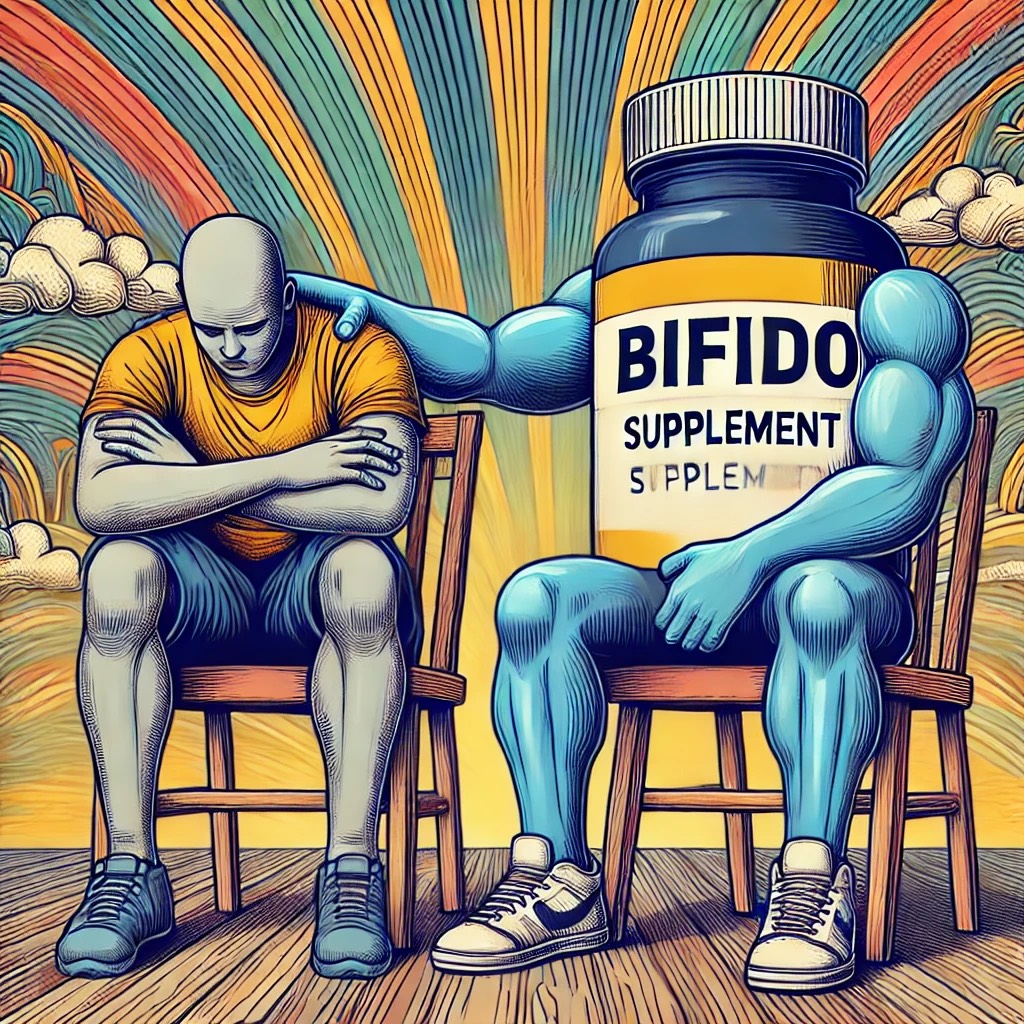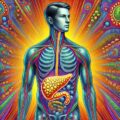Bifidobacterium is Helpful for Mast Cell Activation
 When battling mast cell activation, I tried nearly every probiotic you could imagine. Unfortunately, I kept reacting to nearly everything! I then realized that it possibly had to do with the fact that lactobacillus was in all these. For this reason, I searched for a probiotic that was exclusively Bifidobacterium. Luckily, I found Probiota Bifido by Seeking Health. As I will discuss, it was an absolute game-changer.
When battling mast cell activation, I tried nearly every probiotic you could imagine. Unfortunately, I kept reacting to nearly everything! I then realized that it possibly had to do with the fact that lactobacillus was in all these. For this reason, I searched for a probiotic that was exclusively Bifidobacterium. Luckily, I found Probiota Bifido by Seeking Health. As I will discuss, it was an absolute game-changer.
In this article, I will cover all the reasons that bifidobacterium is helpful for mast cell activation. This will show you how significant this species is to beating MCAS. I will also talk about how to use Bifidobacterium properly and unveil a secret way to grow your Bifidobacterium at home. Lastly, I will cover common questions about using Bifidobacterium for mast cell activation. Scroll down to get started!
How Bifidobacterium Helps Mast Cell Activation
Reduction of Mast Cell Degranulation
The presence of bifidobacterium modulates the activity of the mast cells. In addition, the short-chain fatty acids it produces signal the toll-like receptors, which tell the immune system everything is OK. This causes the mast cells to release anti-inflammatory molecules instead of inflammatory ones. When levels of this crucial bacteria become low, the environment changes in the gut, which aggravates the mast cells. This causes them to degranulate, releasing inflammatory compounds like histamine.
Regulation of Histamine Levels
Bifidobacterium produces metabolites that reduce histamine secretion from mast cells. In addition, bifidobacterium degrades histamine in the gut. This dual action on histamine makes it invaluable if you are battling mast cell activation. Because of these beneficial effects, I hyper-loaded bifidobacterium early in my recovery. This made a significant difference in my symptom severity. Without it, I’m not sure if I could have beaten MCAS.
Increase Production of SCFA’s
When bifidobacterium ferments beneficial fibers, it produces short-chain fatty acids. These are absolutely critical for signaling the immune system. If bifidobacterium is low, then SCFA levels are low, and the mast cells are hyper-reactive. When SCFA levels are normal, the immune system is calm. In short, these short-chain fatty acids are the most important signaling molecules in the gut. Without bifidobacterium, it’s only a matter of time until disease occurs.
Reduce Eosenophil Interaction
Bifidobacterium can reduce the activity of eosenophils which is good for mast cell activation. The reason is, eosinophils can trigger mast cells. By reducing the interaction between these two important immune cells, inflammation is kept at a minimum. This translates into less symptoms for those suffering from MCAS.
Inhibits Mast Cell Migration
Some studies suggest that bifidobacterium can stop the migration of mast cells in response to inflammatory events. This means the severity of the symptoms would reduce dramatically. Mast cell migration is responsible for creating inflammation in the area that causes the symptoms. If you stop them from migrating to the area, you can dramatically reduce the severity of the inflammatory event.
Modulation of Gut-Brain Access
Bifidobacterium also influences the mast cells in the brain by producing neurotransmitters like serotonin and GABA. These important neurotransmitters relax the body, calm the mast cells down, and suppress inflammatory activity. In addition, they produce butyrate which has been shown to reduce neuroinflammation.
Supports Regulatory T Cells
Bifidobacterium produces secondary metabolites called short-chain fatty acids (SCFAs). These SCFAs increase the production of regulatory T cells. Also, bifidobacterium keeps the environment stable, which leads to optimal Treg production. These immune cells are critical for someone with mast cell activation. The reason is, they define the level of tolerance your immune system has to anything it is exposed to.
Strengthens the Intestinal Barrier
Bifidobacterium enhances the tight junctions between intestinal cells. This leads to a reduction in intestinal permeability. Also, it produces short-chain fatty acids, which strengthen the gut barrier. In addition, it fights off pathogens that are trying to attach to the lining. In short, bifido possesses various inflammatory properties that keep the mast cells cal and the gut happy.
Competes with Pathogens in Gut
Bifidobacterium competes with pathogens for a space on the gut lining. In many cases, it can remove the pathogen from the gut lining so they can be detected and eliminated by the immune system. This is crucial for maintaining gut health and calming down mast cells. I have used high doses of bifidobacterium for mast cell activation and had success. Though it can’t wipe out stubborn gut infections on its own, it can start to balance the gut and get the immune system under control. This is critical if you want to overcome mast cell activation for good.
Influencing Cytokine Production
Bifidobacterium has been shown to reduce the production of inflammatory cytokines like TNF-a and IL-6 and increase anti-inflammatory cytokines like IL-10. Both of these actions are critical to maintaining gut health. If the inflammatory balance is off, then a leaky gut is inevitable.
Using Bifidobacterium for MCAS
When you have mast cell activation, the best way to dose bifidobacterium is heavy! At first, you want to start slow with a capsule or two and eventually work your way up to six capsules per dose. It is important to always take bifido on an empty stomach, ideally 30 minutes before a meal. If you want even better results, refer to the instructions below. I have given you a way to culture your bifidobacterium at home. This makes it much more potent and far less expensive.
Creating Bifido Bomb Liquid Probiotic
After seeing such progress with bifidobacterium, I created a way to grow it. Though it was initially done to save money, it also dramatically increased potency. Unlike the supplement, I now had HIGHLY aggressive strains surrounded by its favorite food and short-chain fatty acids. Once I started doing this, my mast cell activation symptoms definitely reduced in severity. Though it wasn’t the silver bullet for MCAS, it was crucial in healing. Learn more about the Bifido Bomb recipe in the link provided. Also, look at the video below to see how potent this stuff can get. The stuff in the video had been fermenting for about 2 weeks.
FAQ – Bifidobacterium and MCAS
What foods support the growth of bifidobacterium?
Bifidobacterium likes foods high in plant fiber, inulin, and FOS. For example, it thrives on bananas, onions, leeks, asparagus, Jerusalem artichokes, chicory root, apples, oats, barley, flaxseeds, legumes, yams, sweet potatoes, dandelion greens, wheat bran, cabbage, berries, almonds, and green peas. If you try to eat plenty of plant fiber, your bifidobacterium levels should be good. In contrast, if you eat plenty of meat, you will discourage bifidobacterium growth.
Are any other probiotics good for mast cell activation?
Bifidobacterium is the best species by far for MCAS. Keep in mind several different strains of bifidobacterium are beneficial for MCAS. The most important of all is bifidobacterium longum, because of it’s direct action on mast cells. If you have mast cell activation, you want to focus exclusively on bifidobacterium. Once you have built up the population of bifidobacterium, THEN you can try other strains like lactobacillus rhamnosus and l. plantarum.
What brand of bifidobacterium is best for mast cell activation?
There is only one bifidobacterium supplement worth buying: Probiota Bifido by Seeking Health. I can personally attest to the potency of this product. I have used it to culture successfully in liquid for years. It is expensive, but unfortunately, there is nothing like it on the market. Nearly all probiotics have lactobacillus in them, which is NOT what you want if you have mast cell activation.
Can I take too much bifidobacterium if I have MCAS?
If you take too much Bifidobacterium, you may experience bloating, loose stools, or an increase in bowel movements. At the same point, when you’re at a dose that produces those side effects, you also won’t be experiencing your mast cell activation symptoms as much. The key is to find the dose which produces minimal side effects, but maximum relief. Keep in mind, the number one goal is getting the immune system under control. If you have to deal with loose stools to accomplish this, it is worth it.
What reduces levels of bifidobacterium in the body?
Things like antibiotic use, poor diet, chronic stress, aging, chronic illness, and lack of prebiotic fiber can reduce bifidobacterium levels. In addition, environmental toxins (mycotoxins etc.) and gastrointestinal infections can further reduce bifidobacterium. In terms of diet, if you eat a lot of animal products but minimal fiber, you will eventually get low levels of bifidobacterium. This is why implementing a plant-dominant diet is so important when recovering from mast cell activation. Not only will it increase your bifidobacterium levels, but it will also help you detoxify better.
Conclusion- Bifidobacterium Helps Mast Cell Activation
Bifidobacterium is the most important probiotic species if you are healing from mast cell activation. The truth is, it doesn’t even remotely compare to any other species. To beat MCAS, you need to replenish your bifidobacterium levels. Hopefully, by using the Bifido Bomb recipe and the information in this article, you can improve your bifidobacterium levels. From there, all you need to do is support them with plenty of plant fiber, and you will be set!
If you have any questions, get in touch. I have more experience using bifidobacterium for mast cell activation than anyone in the world. I guarantee that!
Happy healing everyone!
Matt Nedin
Certified Holistic Nutritionist
EndSickness, Founder
Phone: (734) 846-8619
Email: endsickness@gmail.com
WhatsApp/Telegram: +17348468619












